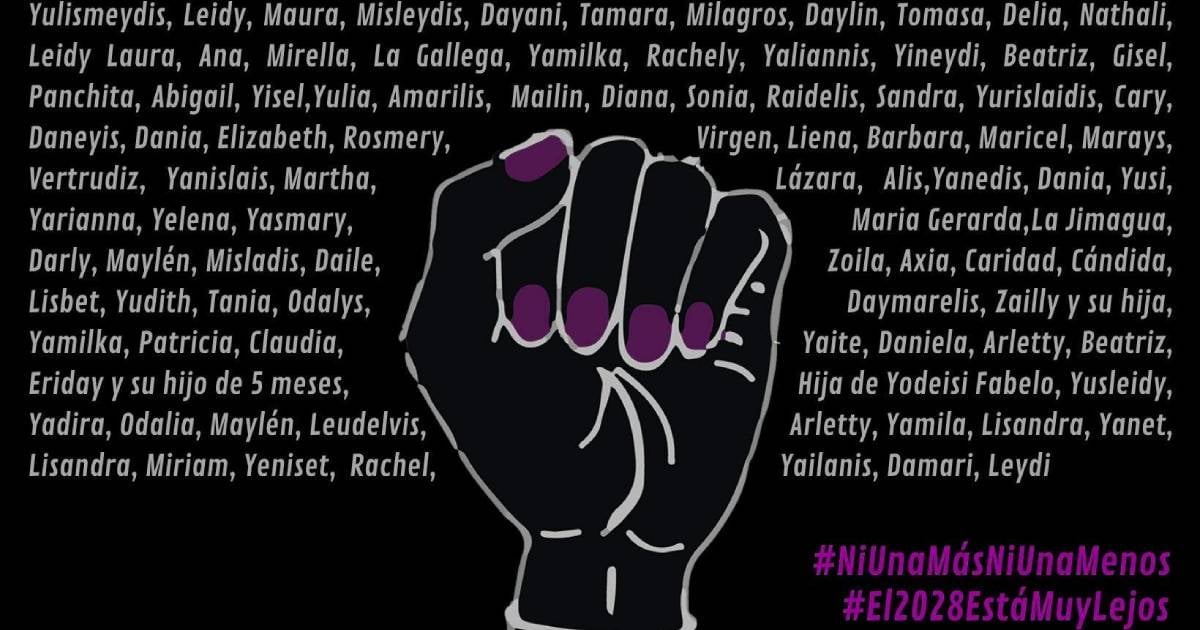
The increase in femicides in Cuba has repercussions that extend beyond the direct victim, deeply affecting families in a context where the state has no mechanisms for reparation or support for dependents such as children and other individuals reliant on the deceased women.
In the case of Cuba, the consequences for the dependents of the murdered women, such as minor children, elderly individuals, or those with disabilities, are devastating, while the attention to these indirect victims by state institutions is insufficient.
A press release from Casa Palanca, based in Madrid, indicates that this reality of helplessness particularly affects people who relied emotionally and economically on the victims and do not receive the necessary support from the State.
"Casa Palanca has interviewed eight families of femicide victims in several Cuban provinces, who share the commonality of not having been properly attended to or compensated, revealing the situation of helplessness in which dependent individuals are left after losing the care of the murdered women, as well as the lack of action from the government to ensure their protection and dignified life," the note states.
This is due, in part, to the lack of specific legislation and public policies to address the needs of those who are left orphaned or without caregivers after a feminicide, the information emphasizes.
A previous text explained that in the Cuban context, where women are largely the main providers of households, their absence creates an irreparable void that affects the economic and emotional stability of families.
According to data from the Gender Observatory Alas Tensas (OGAT) and Yo Sí Te Creo en Cuba (YSTCC), from 2019 to June 2024, 285 people dependent on victims of femicide have been recorded in the country.
This includes, among others, children who suffer the consequences of losing their mother in a violent manner.
These data reveal that more than a third of women who are victims of femicide were between the ages of 26 and 35, a stage in life during which many Cuban women take on caregiving responsibilities.
The death of these women leaves many people without access to the care and support they provided.
The fact that there are no mechanisms for compensation or adequate support programs for these families exacerbates the situation.
Despite the fact that unpaid caregiving work disproportionately falls on Cuban women, the lack of recognition of the needs of individuals affected by femicides perpetuates their vulnerability.
The investigation by Casa Palanca not only highlights the vulnerability of these individuals but also underscores the urgency of implementing reforms that ensure comprehensive reparations for indirect victims, such as access to psychological, social, and health services.
In addition, the lack of specific legislation in Cuba that addresses the compensation and protection of dependents of victims of femicide, as well as the prevention of these crimes, reveals a gap in the country's legal and social system.
The Casa Palanca research advocates for changes that include the creation of effective public policies, such as preventive measures, that ensure the protection of these non-lethal victims and promote an environment of equality and safety for all women.
So far this year, independent platforms have confirmed 37 femicides in Cuba in 2024, and have reported three attempts of misogynistic crimes, six cases that need access to police investigation, and two murders of men for gender-related reasons.
What do you think?
COMMENTFiled under: